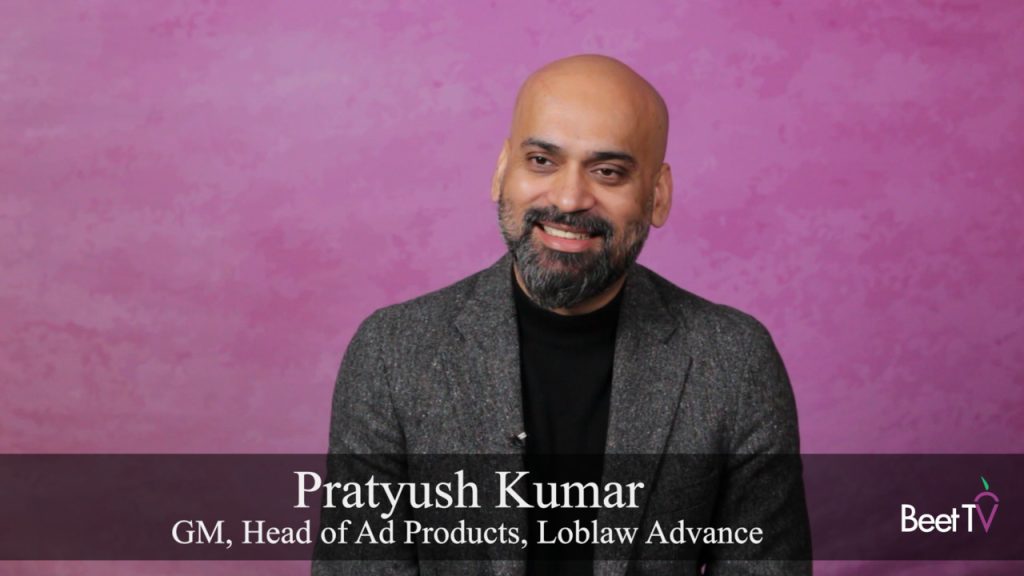SAN FRANCISCO – How can ad platforms hope to front up against Google and Facebook when the fabric of ad targeting is being ripped apart?
By laying a new infrastructure, says Travis Clinger.
Third-party cookies are being deprecated by browser makers and Apple is switching its Identifier For Advertisers (IDFA) system to opt-in by consumers – threatening traditional modes of targeting users.
But, in this video interview with Beet.TV, Travis Clinger, SVP for addressability and Ecosystem at ad-tech company LiveRamp, says, amid this maelstrom, there is opportunity to build something better.
Beyond third-party
“In the past, what you would do is you would match that to a third-party cookie, and then we would have the DSP (demand-side platform) transact on their third-party cookie space,” Clinger says.
“But as we all know, the third-party cookies is already gone on 40% of inventory today, with Safari and Firefox, and is soon going to be gone on Chrome.
“We also know that the IDFA is going to be substantially reduced come early January of next year when Apple implements its change. And we also know that connected TV doesn’t have third party cookies.”
Post-cookies: How publishers are authenticating audiences. Fill out the form and download the report. Sponsored by LiveRamp. https://t.co/S6ypE0TiJD pic.twitter.com/pINUJrdF45
— Digiday (@Digiday) August 28, 2020
Real identity
Clinger thinks LiveRamp’s IdentityLink (IDL) solution can help. It is a deterministic, people-based ID that, many think, can improve on the often-inaccurate practice of cookie matching.
IdentityLink gets user information from a publisher and stores it as a hash-encrypted envelope inside a publishers’ first-party cookie.
Then the publisher’s supply-side platform (SSPs) opens the envelope and passes the information to the ad bid stream, so that demand-side buying platforms (DSPs) are bidding on real identity.
“This means they can frequency-cap (ads) at the person level instead of the device level – making sure that I see five ads instead of five ads on every device I own,” Clinger says.
Excited to announce that @IndexExchange is our first SSP to enable IdentityLink in the bidstream globally! Marketers and now buy and measure on IdentityLink around the world. Appreciate all of the partnership from @mikeosullivan and the IX team!https://t.co/ThyYpLk3fC
— Travis Clinger (@tclinger) July 20, 2020
Identity in the bid stream
He thinks the approach isn’t just a boon for advertisers, but for ad-buying platforms, too.
“This is a game-changer for DSPs,” Clinger says. “DSPs are competing, of course, (amongst) themselves but, more importantly, they’re competing with the large social platforms.
“If you’re a DSP, really your true competitor is Google, Facebook and Amazon. Those platforms transact on people-based identity, so now we are giving these DSPs and the open internet that same people-based identity.”
More than 40 DSPs are now plugged in to transact on IdentityLink – amongst them, MediaMath, which went live in July.
You are watching a segment from a Beet.TV series titled Programmatic Buying: Accountability & Transparency in Focus presented by MediaMath. For more videos from the series, please visit this page.





































